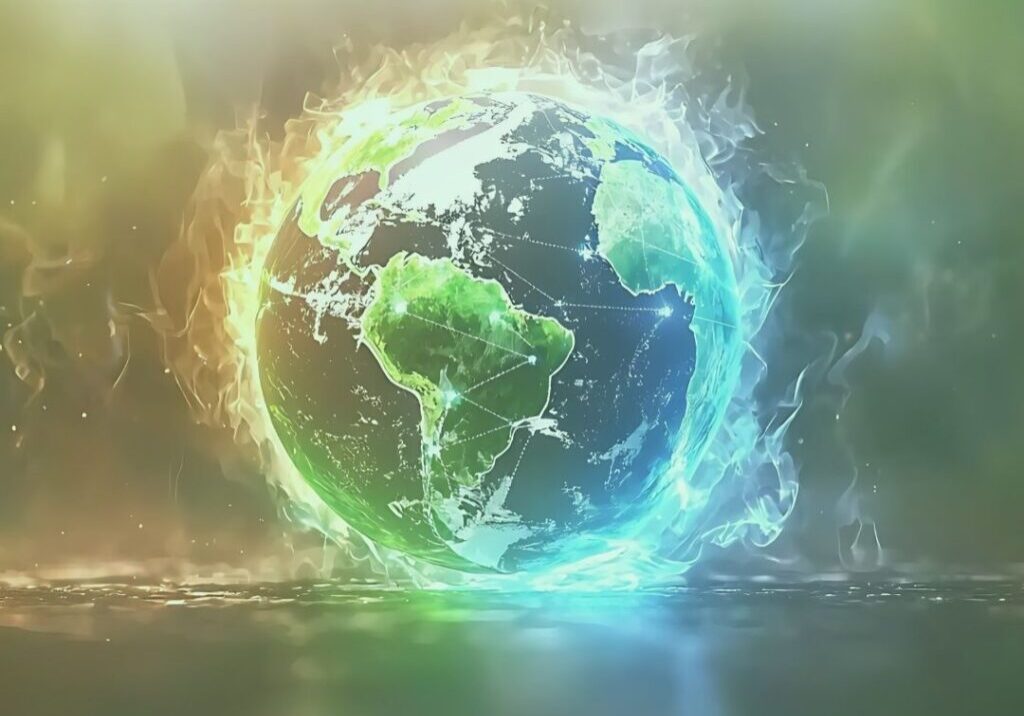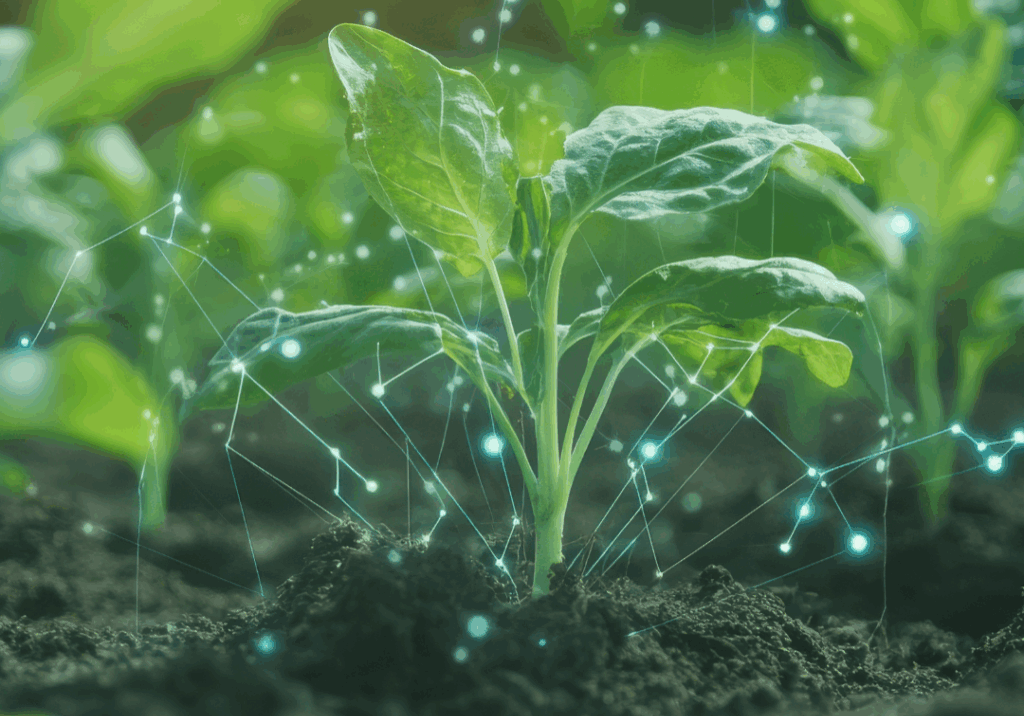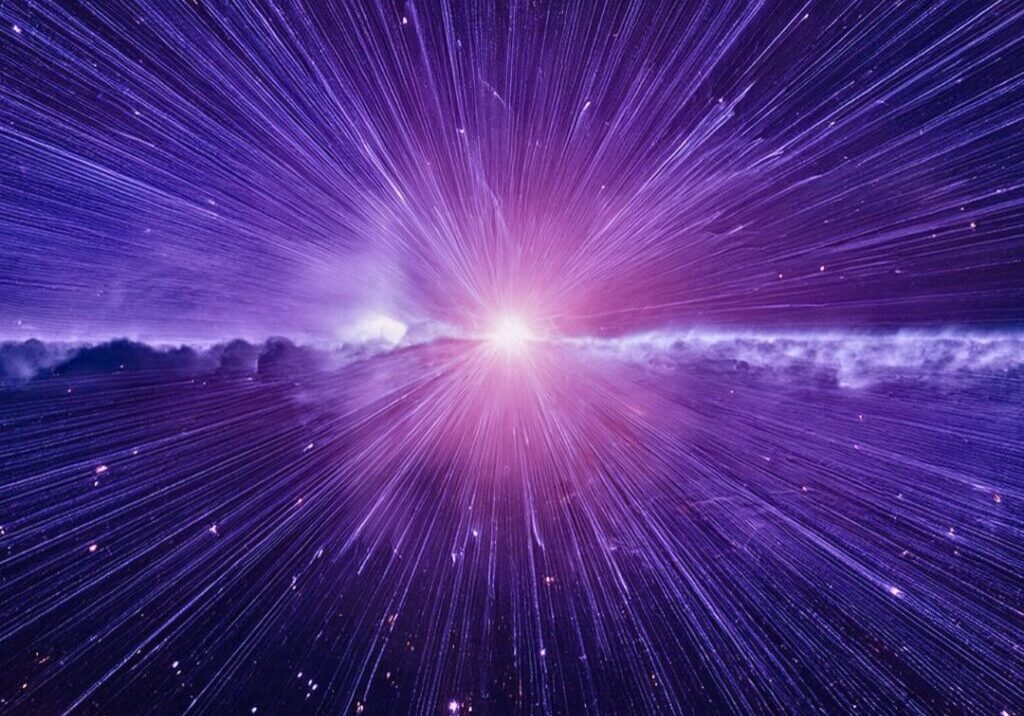Love In An Age Of Distrust
In the 1960s Gordon Moore, the cofounder of Intel, predicted that computing power would double every two years, increasing evolution at an exponential rate. Technology has radically changed our lives to the extent that we are evolving rapidly but not evenly. We can no longer presume the human person is a homogenous entity; rather every person is in a flow of becoming but the rate of flow differs depending on each person’s ability to expand in consciousness. Evolution is developmental time and depends on a variety of factors including environment, history, culture, and engagement in the local milieu.
The interwoven use of technology in our daily lives, however, has disrupted our biological adaptation to evolution. For example, studies today show that the human brain is changing due to continuous internet use. Brain capacities such as memory and thinking are being outsourced to Google. Since the brain is a “use it or lose it” organ the obsessive dependence on technology is causing the human brain to lose the memory capacity and the capacity to think deeply. Moreover, our sense perceptions are being changed in so far as the lines between virtual and real are becoming erased. As a result, our emotions of love, compassion, fear, and aggression are being altered. The pavlovian response to email dings or texts is inducing hyperanxiety, impulsive behavior, and narcissism. We have some serious questions to face, not so much “what are we doing with our technology?” but “what are we becoming with our technology?” Everything we are is being rearranged by technology.
The influx of technology into our daily lives also has profound implications for religion. Scholars recognize that the rise of modernity and the split between science and religion gave way to a disenchantment of nature. As science began to master the spaces of the natural world, God was pushed out. Modern science has systematically dismantled our western understandings of sacred space, leaving God, heaven, and the souls of the dead with no particular place to go. The understanding of and mastery over physical space, from astrophysics to genetics, has meant a loss of spiritual space in the physical world. Charles Taylor highlights how modernity is secular, horizontal, and immediate in that it defines a new space for God.
But the fact is, we long for transcendence; we are capax infiniti; our constant urge is to reach for the stars. But if science has conquered space, to where shall we turn? What shall we reach for? This is where technology has stepped in to fill the gap left by the disenchantment of nature. The cyber world provides an arena of transcendence; it fills a psychological and religious void in modern life. And this is why the ecological crisis will continue to deepen as technology expands, because the light of divinity in nature, as Saint Francis perceived, is now found online in the unlimited arena of virtual reality.
While a discussion on technology and ecology is essential, my purpose for raising the import of technology for our age is that we are losing consciousness of what it means to be human. We are spending the majority of our waking hours in front of an artificial screen or tethered to a device and we are losing contact with nature, not only with the world of trees and flowers but with the nature of being human. We are less tolerant of one another, more emotionally reactive and increasingly unable to cope with the complexities of our age. Our addiction to technology is causing us to unmake the world at an alarming rate. Perhaps most important, we are losing the capacity to love by way of forgiveness and reconciliation; that is, we are losing the ability to transcend our partial lives by way of love in order to create a new future together. The continuous political, economic and social unrest continues to spiral, thanks to technology, and we cannot find a means to slow down or turn in a new direction.
We have within the Christian tradition the wisdom of the cross, the inscrutable mystery of God’s unconditional love in the midst of suffering and death. The cross seems, on one hand, foreign to us and yet, it is our deepest reality. No new life without suffering and death. Bonaventure saw the cross as the most explicit expression of God’s love. Christ Crucified discloses the heart of God in the heart of the universe. The cross expresses the mystery of God’s absolute love hidden in the finite frailty of the human person. The humility of the cross reflects the humility of God. In light of the Crucified Christ, Bonaventure indicates that being is embodied love—an agapic love which possesses nothing for itself but rather gives itself entirely and completely to the other. To be is to love and to love is to be in relationship. Zachary Hayes states that in the physical world “isolated, independent existence must be given up in order to enter into broader and potentially deeper levels of existence.” Teilhard de Chardin would agree; love is our deepest reality. The universe is grounded in love.
But if love is our truest nature and technology is changing that nature, how can we renew our deepest reality of love? This is a question for our age and an important one to engage. For the type of love that mends broken hearts is not superficial; it cannot be controlled electronically by the touch of a button. It is a decision to love beyond what is beneficial or satisfying to one’s ego; it is to love by way of sacrifice. This type of love requires a greater love at the center of one’s being; a love of God, a love of neighbor, and a love of self, the triadic structure of love that is at the mysterious core of our personhood. And it may be that we have to hit rock bottom before we discover this love deep within us, the realization that we belong to one another because we belong to God, and without one another we cannot find our wholeness of life in God.
The movie The Railway Man powerfully portrays the type of costly love that is needed in our age. It is the true story of Eric Lomax, a British soldier captured by the Japanese in the fall of Singapore in 1942 and treated as slave labor in the construction of the notorious “death railway” from Thailand to Burma. Lomax somehow miraculously survived to confront his torturer forty years later. During his time as a prisoner, Lomax was savagely beaten and tortured by the Japanese soldier, Nagase, and even after he was freed, returned home and married, he was driven by an unabated obsession for revenge against Nagase. He eventually returned to Japan to meet his former torturer in order to seek justice and confront the man who destroyed his life. But when he finally came face to face with the aging Nagase, the old man had changed with time. Encountering one another in the same place where death had prevailed, Lomax met a man broken down by years of remorse. Nagase admitted that the Japanese had been brainwashed to confuse violence with success. The final scene is a light-filled resurrection of life, as if seeing Jesus being raised from the dead by the power of love. Each man began to walk toward the other, meeting in the center of the road. Without hesitation the Japanese Nagase bowed low before Lomax, expressing deep sorrow for his actions. The British soldier was torn between hate and forgiveness; he realized that he must let hatred go if there is to be any hope of new life. It is hard to imagine that one could befriend a former torturer but indeed that is how the story ends. The two men who were mortal enemies found their humanity in the other through the power of love and the will to forgive. Through their lives the power of love and the power of forgiveness were visibly intertwined.
This type of love, costly love, cannot be found in virtual reality nor can it be managed online. It requires all that we have and all that we are. It requires our utmost attention, our hearts and our wills; this type of love requires total self-gift. Love is not looking at the other but it is looking together in the same direction, releasing the other from the grip of hate and allowing the good of the other to shine through, in so far as that good is oriented toward a new future. Where there is love and forgiveness, there is hope for a new reality.
God will not mend our broken hearts without us but God will continue to be with us, constantly challenging us with the question, what do you want? We are being invited into deeper levels of love and forgiveness in our own time because this is our deepest reality. Love is the energy of creativity and imagination because love stretches us beyond ourselves to reach for the stars. How we choose to love in a world of distrust will impact our future, a future that we will create together or not at all.
 View print-friendly version
View print-friendly version
3 Comments
Related Posts

The Earth Groans, AI Grows: Who Guides the Flame?
In this critical moment of planetary history, where ecosystems collapse, artificial intelligence proliferates, and human meaning trembles on the edge of uncertainty, we are faced with a profound question: What kind…


Thank you Ilia for this insightful commentary on where we are “at” in these times of technology ruled interactions…at least in our Western society. LOVE and the choice we still have to USE technology (rather than be ruled by it) for the spread of that LOVE is critical. You have brought a powerful searchlight to this issue that stands at the heart of our future. And the accompanying issue of forgiveness is paramount right NOW. I believe it requires a larger view of what is going on….underneath what is ‘going on’. It requires an evolutionary eye and a global heart where LOVE is more powerful than all else.
There seems to be a deep need on the part of the human being to be recognized, to be important, to be loved. Initially this is manifested on our need to be loved by our parents. Whether that love is passed on, or not, will lead to a lifetime of change and searching. Unfortunately we tend to look outside of ourselves to find recognition or love (maybe because our parents were outside of us). This may be cultural, but it could be also the product of our technology, to arouse in us the sense of fire or excitement from something we see on our computer. The cyber world of computers stimulate and provide a need to feel excitement in one’s life, meaning in one’s life, to be important to someone or something. I see it at conferences I go on. There is a lecture on an interesting topic, but members in the audience are sneaking glances at their smartphones, looking for that text, email, or news, in the palm of their hand, that will make them excited or feel important. There is a loss of the ability to concentrate on the topic before us in exchange for the possible excitement that removes us from the lecture room and makes us feel, what? Maybe it makes us feel less empty inside of our souls. Maybe the turn inward is the difficult step, since our senses are aimed at analyzing the environment outside of ourselves (this could be inbred to survive since we need to adapt to the threats in the environment in order to survive).
Yet the term “Losing consciousness of being human” is a tricky term to apply only to our age of technology. Throughout our human history, we, as people, have lost the sense of “consciousness of being human”. What about in the 1930’s with the rise of German Nationalism leading to WWII? Or, what about the Catholic Inquisition, was this not a loss of “consciousness of being human”? What about the need for the strongest, financially rich, countries to have so many nuclear weapons that life could be annihilated from this planet with a push of a button. That began long before the current “cyber life of computers”.
Just maybe, we as a species, do not have a big enough appreciation of what a “True consciousness of being human” truly is? It appears in this post that “True consciousness of being human” is based upon the quality of love and forgiveness. I would pose the thought that such a concept, love and forgiveness, has repeatedly failed through out the brief time of human history. However, I would hypothesize that in order for the human species to survive and evolve, ‘love and forgiveness’, and not ‘wealth and power’, are the needed ingredients.
“God will not mend our broken hearts without us but God will continue to be with us, constantly challenging us with the question, what do you want? We are being invited into deeper levels of love and forgiveness in our own time because this is our deepest reality. Love is the energy of creativity and imagination because love stretches us beyond ourselves to reach for the stars. ”
Yes! I love this. It is my experience that what is needed is first to WANT to forgive, though I don’t know how it could possibly ever happen. The recognition that I am holding onto something and the deep wish to let it go, is how I knock — is how I ask. Love opens the door and pulls me, stretches me into a journey toward the miracle of forgiveness.